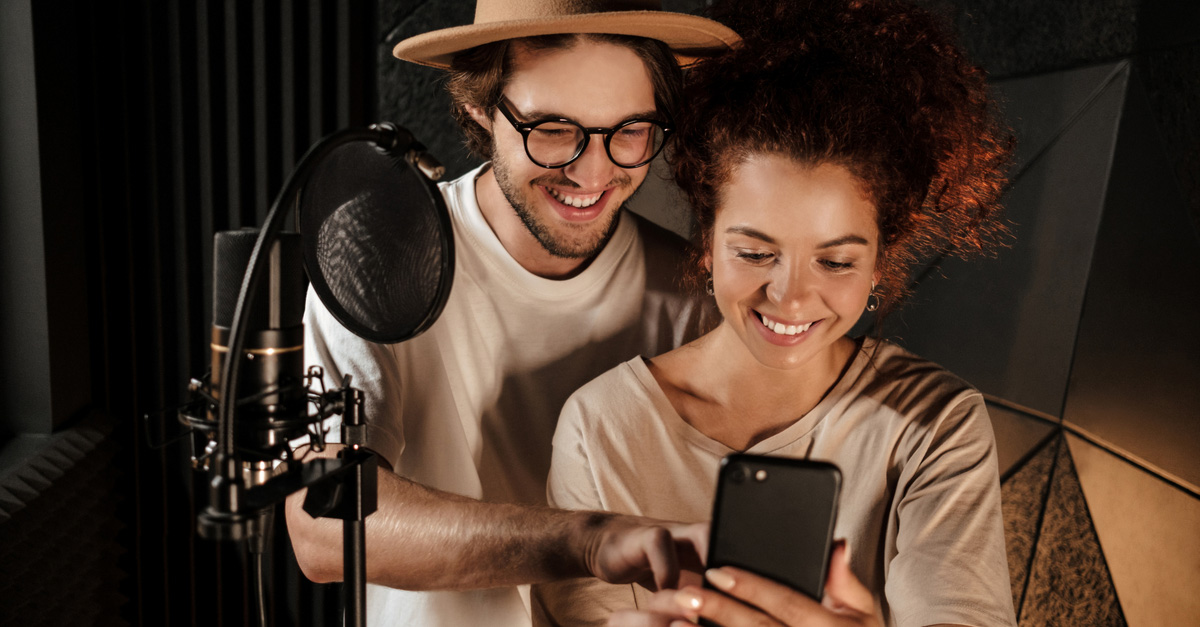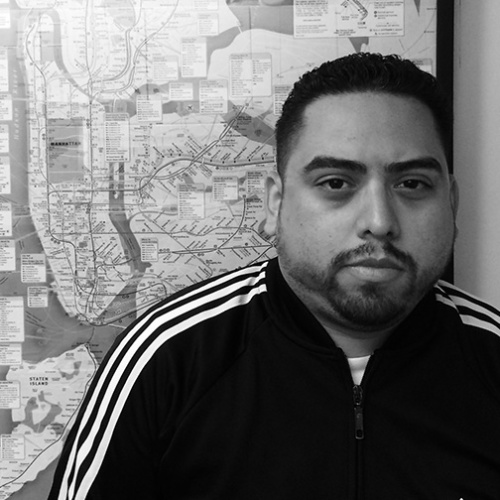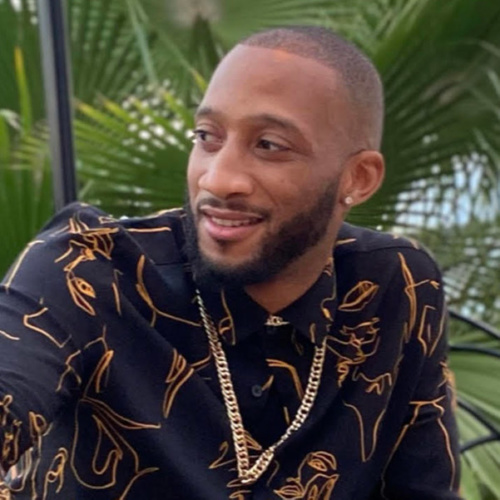As an artist in today's always-on, social media-focused, trending-obsessed world, simply making great music isn’t enough—how to promote your music is just as important.
In the ever-evolving music industry, you as a working musician need to not just craft tunes that your fans and those who might not know you yet will want to hear, but also promote, promote, promote!
Whether you’re signed to a major label or you’re doing it all on your own, you’ll be spending a lot of your career promoting the songs you write and record. You might grace the cover of Rolling Stone or see your latest single sit atop a Spotify playlist, or you may do everything you can just to get a tiny bit of attention on social media. No matter the level you’re at or what activity you’re engaging in, it’s all about getting the word out about you and your art.
Most indie acts just getting started have to do all the promoting themselves, as they don’t have a team or the resources to farm these tasks out. Once a band becomes more popular and has some cash to their name, or maybe a label behind them with a full publicity department, promotion is a major key to success, and there’s no way to avoid that fact.
Read on below to learn how to promote your music and what promotion exactly entails.
As an added bonus, we talked to Def Jam A&R Anthony Mundle (YG, 2Chainz, Alessia Cara) and RI Entertainment GM of Artist Management and Development Jerry Beltran (DMX, MIKA, French Montana) to get their insights on music promotion for artists.
Yes, I’ve placed this first, and no, I don’t believe that’s putting the cart before the horse. While it is the music that matters most, you want to be ready for people to find you, buy your tunes, purchase merch or possibly book you for a show the minute they discover your work, don’t you?
Don’t wait until you have a large following to create a website, because by then you’ve likely already missed lucrative and important opportunities. It doesn’t need to be fancy, but your site should have all your info and at least links to your store and content, to begin with.
Once you’ve recorded your first songs, you need to share them with the world. Sending your music to all the major platforms, such as stores like Amazon and iTunes and streaming sites like Spotify, Apple Music, Pandora, and many others has never been easier, and it’s actually not that expensive.
There are quite a few well-known and respected players in the music distribution space for up-and-coming acts, so you’ll only need to do a tiny bit of research and hand over a few bucks and suddenly your art will be available everywhere!
Once you’ve secured distribution for your music, you’ll want to look at BandCamp, which is something you can do all on your own. BandCamp is a fantastic platform for all manner of musicians, but it is most popular with those who are unsigned or who haven’t become superstars just yet.
The site is great for those who want to sell their music right to their fans, and even if it doesn’t bring in enough to fund your music career, it doesn’t take long to set up, so it’s worth it!
Just as you’ll want to have a website in place before you begin distributing your music, you should also create profiles on the biggest social media platforms, such as Facebook, Twitter, and Instagram, at least to begin with.
The next big step when it comes to the world of social media is not just having those profiles, but building a following. I could talk about this topic for hours, so I won’t dive too deep, but there is a big difference between simply sharing when you have new tunes or the details of an upcoming concert versus learning how people act on these sites and working hard to interact and reach new fans.
This is an item that shouldn’t even need to be on this list, but it is worth mentioning. As a working artist, you should always be networking. Actually, that’s something you’ll want to do as a functioning human being, as you will only get somewhere in this world by meeting people and forming lasting, meaningful relationships.
Some people see networking as shaking as many hands as possible and giving out your business card or accruing followers on music social media, but if you’re doing it right, it’s about so much more than that. When it’s safe to do so again, find events, concerts, and parties where others in the music industry spend their time and go out of your way to introduce yourself and talk to people. Don’t worry if you don’t get a big meeting out of every chat, as you’re playing the long game here.
Putting it simply: make sure people you meet remember and like you, and then do your best to follow up with them later on to see how you can possibly work together. That’s effective networking.
You won’t need an electronic press kit until you’re ready to start promoting yourself in a business sense, so if you’re happy to stick to writing and recording music in your bedroom and then releasing it and moving on to the next, this can be pushed further down this list.
An electronic press kit, or an EPK, is a must-have for musicians who are hoping to reach out to record labels, booking people at concert venues and festivals and for those who want media coverage. An EPK is a concise, condensed package that delivers all the information these people might need, along with your music, in an easy-to-digest format.
It will take some time to create, though there are plenty of websites and programs that will help you to do so well. You’ll also want to make sure you keep it updated with the latest news, contact info, and, of course, music.
Some may say that in 2021, mailing lists are no longer necessary, as most fans head to a musician’s website or their social media channels to see their upcoming tour dates and to hear about new releases, but I argue with that. Sure, they don’t hold the same importance they have in the past, but that certainly doesn’t make them archaic!
Even if you only get a few fans to sign up for your mailing list, it’s still something you should spend some time and money getting right, as these are the people who are sure to listen to you the most and who will likely be spending a lot of money on your art.
Building a mailing list takes time, and it may go very slowly. In order to get people to hand over their email addresses, make sure a form is featured prominently on your website, ask fans to do so on social media and at shows, and try enticing them with discounts on merch or other goodies.
These next steps are only to be attempted when you’ve already released some music, played at least a few concerts, and when you already have fans. Doing so beforehand probably won’t hurt your career, but it may be a waste of your resources.
Of all the items listed in this section, I would say that getting featured on blogs, in magazines and so on is perhaps the easiest…though please don’t think I’m saying it’s actually easy to do. In fact, it is notoriously difficult, but still not quite as hard as what’s shared below.
Countless music lovers still scour many tastemaking blogs daily for new bands and just-released songs, as they can’t get enough of what’s coming next. Convincing Writers to listen to your work and present it to their audience is very hard, as these people are inundated with CDs and emails non-stop, and they only have so much time to cover anyone.
You may want to stop and think long and hard about forking over hundreds, or possibly even thousands, of dollars for a Publicist, who will do all the work of reaching out to Editors and Writers for you. They will also probably have experience with writing press releases, enticing pitches, and they may have relationships with those people to begin with.
If you don’t have the money to hire someone to do this for you, it’s possible to do the work yourself, but I highly, highly encourage you to read up on best practices and how the PR world works. If you don’t, you run the risk of going about it all wrong and wasting people’s time and ending up annoying them, which won’t help your cause now or in the future.
Years ago, radio helped break artists and was the main medium people used to discover new songs and bands. Now, that role has been transferred to playlists, which are housed on streaming platforms like Spotify and Apple Music. The countless rankings that fit every occasion and mood can be played by millions of people, and if a musician can get their latest track on a very popular option, it could make all the difference.
Just like radio, though, it is very difficult to be selected, and there aren’t too many playlist makers and Editors to contact. While you may feel ready to handle all your media outreach efforts, playlisting is a totally different field, and this may be where you should spend your hard-earned money. The firms and people who have been able to forge relationships with those in decision-making positions are typically worth the high cost, as you probably won’t get anywhere on your own, sadly.
The last thing you’ll want to do as a musician just getting started is work to secure radio play. It may be especially gratifying to hear your song played on a local station or a college program, but it doesn’t mean what it used to, so I wouldn’t suggest you spend too much of your time on this until later on. I hate to say it, but very, very few acts catch their big break via radio these days.
When it comes to reaching out to DJs and Programmers, you may be able to do some of the work yourself (after researching how to do so effectively and properly, of course), but perhaps not all of it. You can perhaps handle attacking the college scene, or maybe the smaller local outlets, but you may want to consider hiring a company to help when looking at larger stations in major markets and other options, like SiriusXM and so on.


